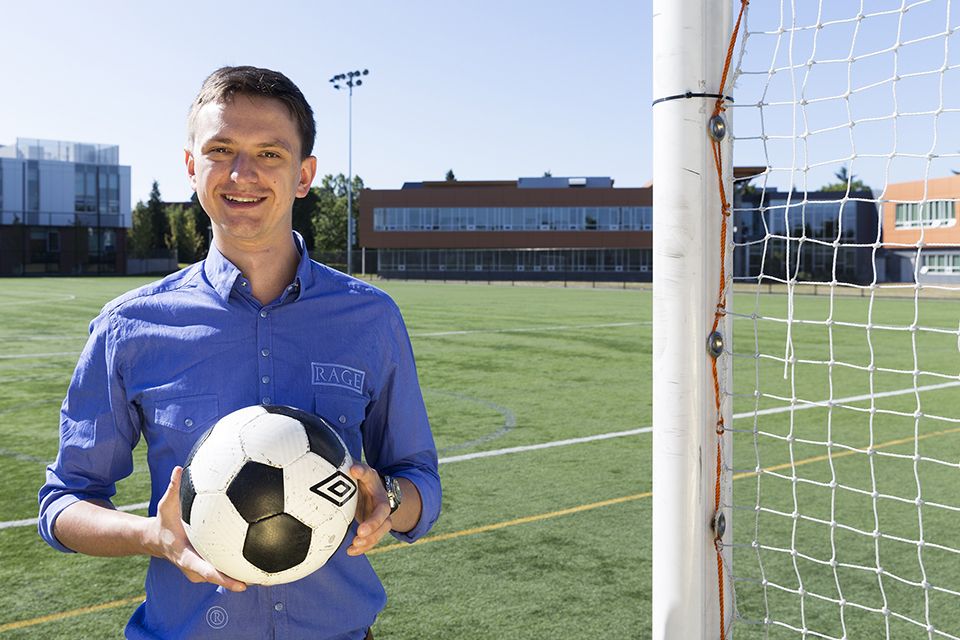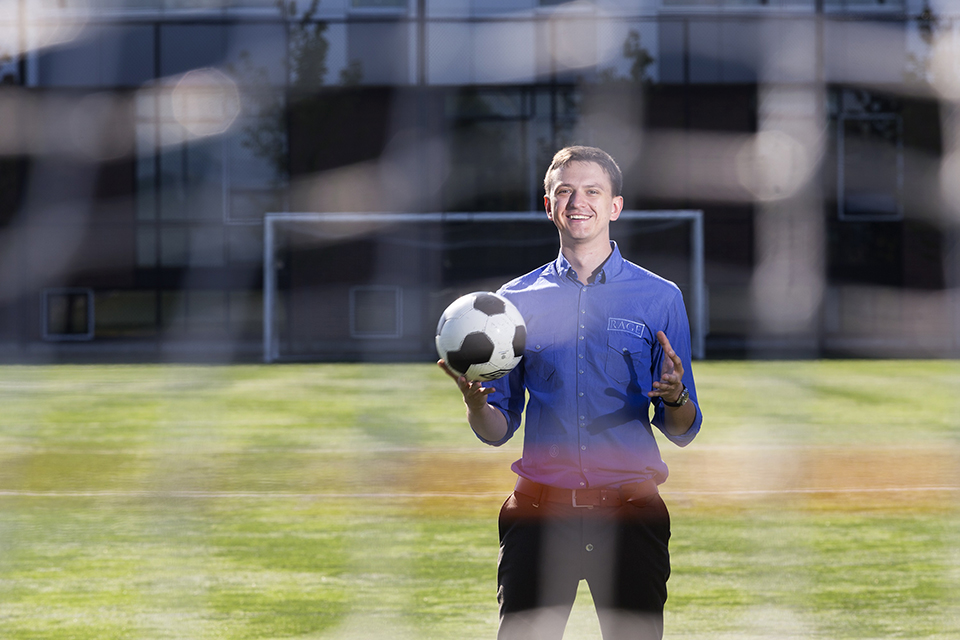Leading in the locker room and boardroom
Peter B. Gustavson School of Business
- Sasha Milam

Globalization, and the rapid movement of people around the world, has created a growing number of people who identify as “bicultural”: individuals who have experienced and internalized more than one culture.
From the perspective of international business and management researchers such as UVic alumnus Mike Szymanski, who identifies as bicultural himself, this idea opens a fascinating angle into team dynamics and outcomes.
Cultural chameleons
Szymanski, who earned his PhD this year from UVic’s Sardul S. Gill Graduate School of Business, explains that there “is an emerging stream of psychology and sociology research on the subject of bicultural employees in the workforce. In management and organizational research, as well, it’s a topic of considerable interest. The existing studies suggest that bicultural employees have specific skills that can positively affect organizational performance.”
Much of the existing research, however, consists of qualitative case studies looking at specific traits including improved conflict resolution, protecting teams against “group think,” effective cross-cultural leadership and more. Szymanski, however, focused his thesis on a sweeping empirical study, exploring whether large amounts of data would support qualitative findings.
What does soccer have to do with it?
Sport is a natural lab for organizational management research. You can control for a number of different variables. There is an incredible amount of available data. And it’s rare to find a subject that generates such passion in a wide audience.
—Mike Szymanski, grad student
Taking football (known as “soccer” in Canada) at the international level, Szymanski examined the results of six consecutive FIFA World Cup and UEFA European Championship tournaments. He studied several elements of team structure to investigate the impact of biculturals on organizational behaviour.
One of his key findings focused on the “diversity of the environment” that teams encountered.
Namely, did teams with bicultural managers win more games when playing against countries with markedly different cultures than their own?

Relating to opponents: why environment matters
Szymanski found that teams with bicultural leaders performed better when playing against teams who differed significantly culturally.
“There are a number of reasons why this could be the case,” Szymanski muses. “Bicultural managers may have the advantage over mono-cultural individuals in reading and adapting to the style of play of a team that’s quite different from their own. These advantages may be more pronounced when guided by a team manager who is bicultural himself and can take best advantage of these skills. And that only has a chance to show up when the team is playing a country with a different style than their own.”
Szymanski’s findings suggest that bicultural traits are useful in team leaders, if they are leading people in a diverse environment.
When applied to a business scenario, this would seem to suggest that a department at a multi-national corporation might perform better with a bicultural team leader.
“Possibly,” says Szymanski, “but within the multi-national company, you would also have to ask: is this team frequently interacting across cultures? That’s where you would see the most effect. There are obviously teams at multi-national companies that mostly interact with a more homogenous, mono-cultural group, and you might not get the same benefits from a bicultural team leader in that scenario.”
Next in the playbook
“I’ve really enjoyed this project,” Szymanski says. “The researchers at the Gustavson School of Business who are studying biculturalism and team performance really got me inspired in this direction. It’s been a fascinating beginning to my career as a researcher.”
Szymanski is set to begin his new post in Mexico as assistant professor at EGADE Business School this fall.



